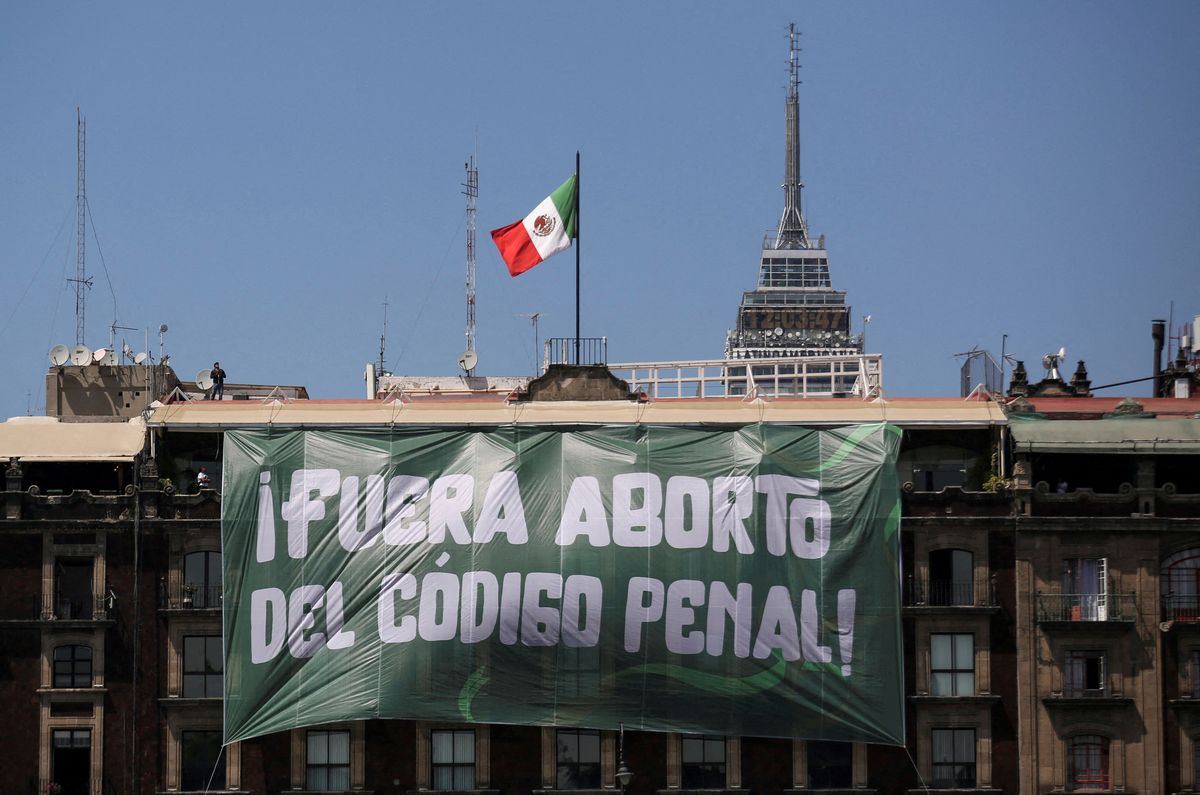Mexico’s Supreme Court decriminalizes abortion nationwide
On Wednesday, Mexico’s Supreme Court decriminalized abortion on a federal level.

A few minutes every morning is all you need.
Stay up to date on the world's Headlines and Human Stories. It's fun, it's factual, it's fluff-free.
The backstory: While Mexico doesn’t have an official state religion, its citizens are mostly Roman Catholic, with over 72% identifying as Catholic in 2020. With such a big Catholic (and even bigger overall Christian population), abortion has been illegal in the country since at least 1931. For almost 100 years, the procedure has been punishable by up to three years in prison in different parts of the country (and 3-6 if done without consent), with the exception of certain circumstances like rape or a life-threatening pregnancy.
But even with such a big Christian culture, the government considers itself secular, and Catholic influence over government policy has been in decline. So, it makes sense that the country has been taking steps to decriminalize abortion over the past 15 years or so – in 2007, Mexico City became the first area in the nation to decriminalize it.
More recently: Even as abortion rights have become more restrictive in certain countries (like the US, Poland, El Salvador and Nicaragua), most of the world has been trending toward freeing up access to these types of procedures. In Latin America especially, this kind of progress has been more visible. This regional trend toward more accessible abortion is often called the "green wave."
In 2021, the Mexican Supreme Court made a breakthrough ruling that said that criminalizing abortion is unconstitutional, but that decision only applied to the state of Coahuila at the time. Since then, the court has been decriminalizing the procedure state-by-state. Last year, the Grupo de Información en Reproducción Elegida (GIRE – Information Group on Reproductive Choice), a major Mexican abortion rights group, filed an injunction (which, in this case, is like a pause button on a specific law) with the court against the Mexican regulation that criminalized abortion.
The development: On Wednesday, Mexico’s Supreme Court decriminalized abortion on a federal level. The court made this decision by striking down the federal law that criminalized abortion, saying that it’s “unconstitutional.” On top of that, the court ruled against bans on medical providers, including midwives, who help perform the procedure. This decision does the groundwork for making abortion legally accessible in all federally operated medical centers. The court explained this decision by saying that the criminalization of abortion violates the human rights of people who can get pregnant. It was unanimous among all eleven Supreme Court justices.
Key comments:
“I’m very moved and very proud,” said Rebeca Ramos, executive director of GIRE. “This makes possible what we had not achieved in many years, which is that at least in certain institutions all across the country legal and safe abortion services can be provided.”
"Today is a day of victory and justice for Mexican women!" Mexico's National Institute for Women posted on X.
This sends the message to society that the life of a son or daughter can be taken before they are born,” said Marcial Padilla, director of ConParticipación, an anti-abortion group to ACI Prensa, a Catholic news agency.
“Hopefully, this is the preamble so that the court can go state by state helping local legislatures eliminate the crime of abortion, since legislators do not do their job,” said Verónica Cruz, founder of the feminist group Las Libres in Guanajuato, Mexico.




Comments ()